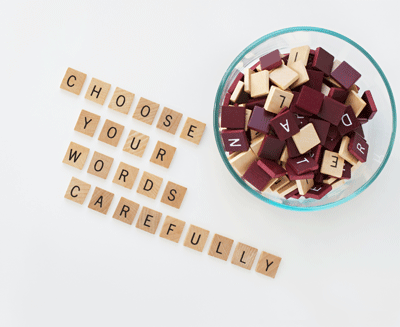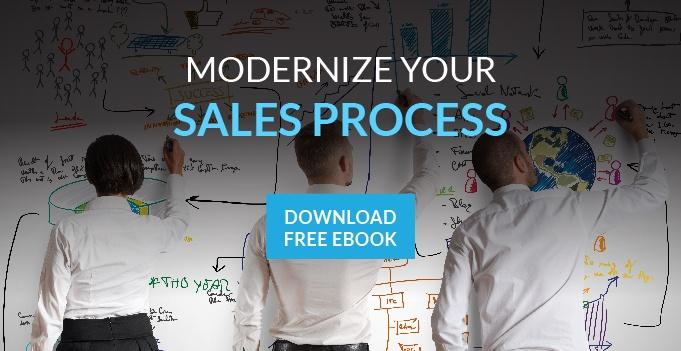 Through the years that I’ve spent in the business world, a fair amount of that time has been spent doing sales, and training other sales reps. And one of the points that I simply can’t stress enough to anyone trying to make a sale is a simply adage that we’ve all heard many times: Choose your words carefully.
Through the years that I’ve spent in the business world, a fair amount of that time has been spent doing sales, and training other sales reps. And one of the points that I simply can’t stress enough to anyone trying to make a sale is a simply adage that we’ve all heard many times: Choose your words carefully.
Of course, you want to make sure that you’re well-informed about the product or service that you’re selling, and I trust that you’re on top of your game in that regard. I’m also sure that you’ll do your homework on the client you’re meeting, and will have some idea of how to approach them, and what their needs, wants, and their “hot buttons” are likely to be.
Still, with all the time and effort you put into marketing, getting leads, and finally getting a meeting with a client, you don’t want to blow the deal because of a slip of the tongue, or by absent-minded use of a word or phrase that’s going to produce the wrong effect in your client. So to help you on the way, here are some words which sales reps should never, ever use when speaking to potential clients.
Cheap - Your company may have gone to great lengths to be as price competitive as possible. But no one wants to buy something that’s “cheap”.
No - I don’t want to use the old cliche and say that the customer is always right, although we do always want to please them. But sales reps really need to avoid responding with language that only has negative connotations.
Obviously - If you have to explain something to the client, it’s not obvious to them, and this may lead them to feel that you think they’re stupid.
Pitch - It’s a sales meeting, not a baseball game. This one reeks of cheap salesmanship.
Should - Sorry, but this makes it sound like you’re lecturing, and people will tune you out.
Cost - Yes, you need to tell them what it costs. But this one always hurts to hear. Replace it with “amount” or “investment.
Price - See cost.
Contract - It sounds too heavy, scares people, makes them think they need a lawyer. Talk instead about paperwork or forms.
Try - Remember Yoda in Star Wars: “Do or do not. There is no try.” If you have to try, it suggests you may not be able, or don’t know what you’re able to do. Simply tell them what you’ll do.
But - Once you say “but”, most people will forget what you said before it.
Great! - It’s unnecessary, and makes you sound too desperate to make the deal.
Difficult - No one wants to hear this about what you’re selling. Show them how you’ll make it easy to use, etc.
Buy - This scares people in the same way as “price”. Instead, talk about ownership, which helps them visualize themselves owning the product.
Sign - Ominous, just like “contract”. Ask them to approve or endorse, which empowers them.
Customers - Professionals have clients, not customers. Or talk about the people you serve, which elevates you.
Advice - Unless they ask for it, most people don’t want to hear advice, and you’ll come off as didactic (see “should”).
Can’t - Too negative. Just tell them what you can or will do.
Commission - You don’t need to hide the fact that you’ll get paid for making the sale, but how you get paid and how much are not part of the conversation with the buyer.
Premier - This doesn’t really mean anything at all, though it sounds real good at first.
Honestly - Honestly, this doesn’t convince people you’re being honest. It has the opposite effect. Or may suggest that what you said before it wasn’t honest. Early in my sales career, I started a reply to a client’s question with “Do you want to know the truth?”. He said, “No, lie to me again”. I never made that mistake again.


Comments